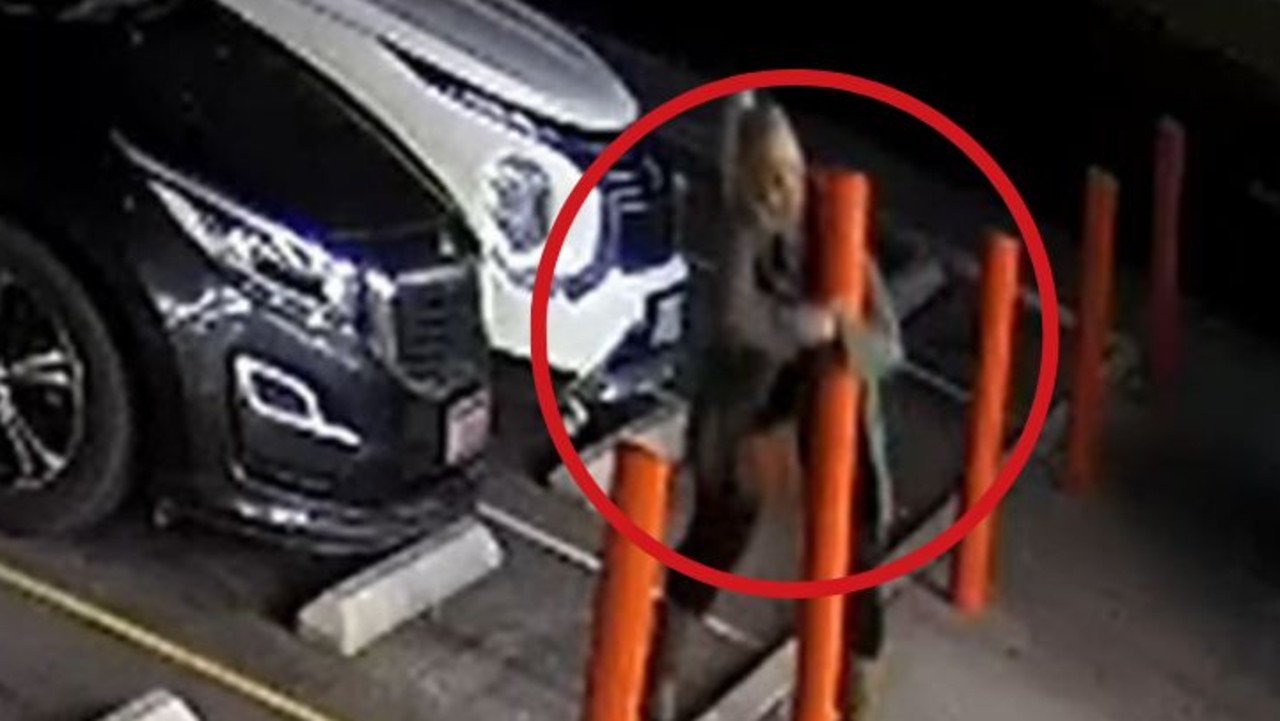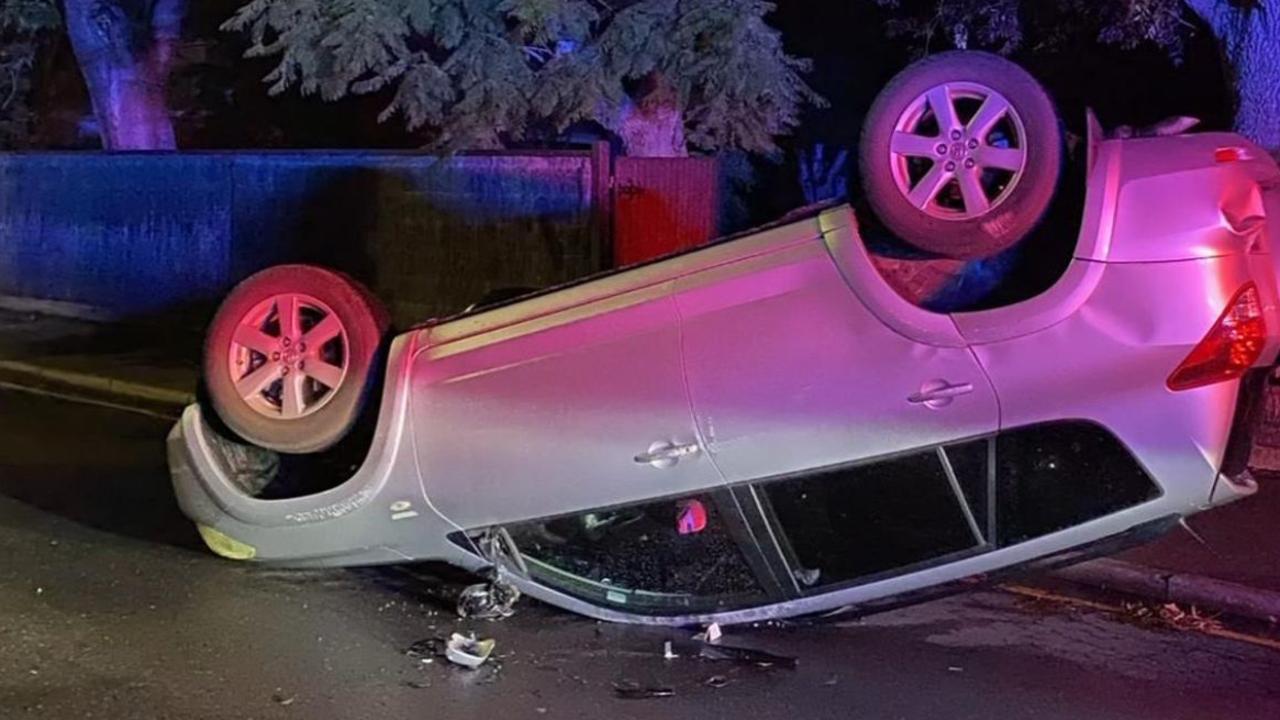Lithium battery boom sparks monthly truck fires for SA waste and recycling industry
Roughly once a month, a suburban garbage truck is going up in flames. Find out what’s causing the bin blazes and why ‘hot loads’ get dumped in our streets.
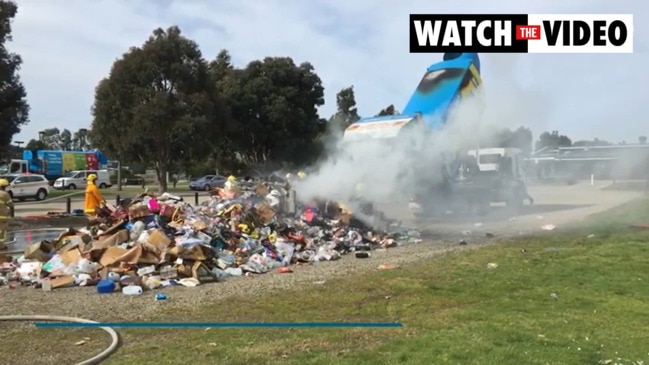
SA News
Don't miss out on the headlines from SA News. Followed categories will be added to My News.
Lithium batteries are causing monthly fires inside the trucks that collect kerbside waste and recycling in South Australia, prompting a call for public education.
This type of battery, which typically powers electronic devices such as smartphones, tablets and laptops, can burst into flames when crushed in the compactor.
Batteries have also been known to catch fire in bins, waste management facilities and landfills, in response to heat or friction.
All four of the companies providing waste collection services in SA expressed concerns about the increasing number of incidents, which ultimately pose health and safety risks.
When fire breaks out inside a truck, it’s called a “hot load” and one course of action is to dump the entire load on to the street before the fire spreads and damages the vehicle.
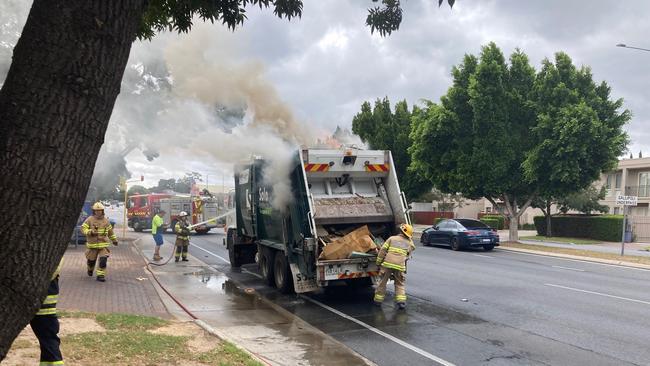
Solo Resource Recovery state manager Adrian Rose said on average, the SA waste management industry experienced about one “hot load” a month.
“In the past 12 to 18 months it’s certainly become more prevalent,” he said.
“We’re getting more and more cordless power tools and other types of things that have batteries to power them, so we need to need to stop and think about how we‘re going to dispose of those safely and try to stop these fires from occurring.”
Veolia has detailed response plans that identify specific on-route safe locations where a driver can eject the load, away from properties and other fire risks, so that emergency services can respond and extinguish the fire.
Veolia Australia and New Zealand chief executive Richard Kirkman said battery fires were a serious hazard that could be avoided by people recycling correctly.
“Overall, less than 5 per cent of lithium-ion batteries are recovered for reuse, which means valuable metals – equivalent to three billion mobile phones – are being sent to landfills and wasted every year,” he said.
“We could safely recycle that lithium as a sustainable, low-carbon feedstock for new energy-efficient electronic equipment, which is not only better for the environment but eliminates the risk of fires from unsafe disposal.”
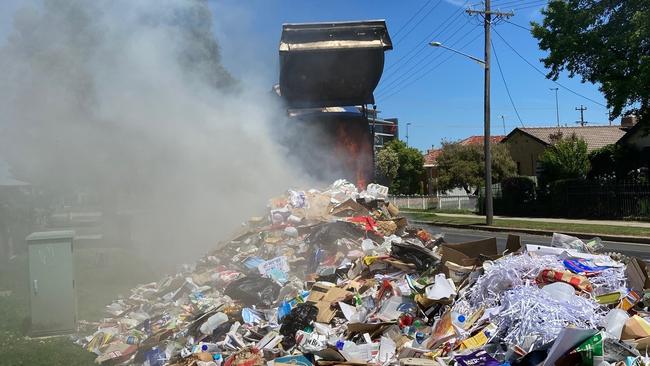
The state’s Environment Protection Authority said disposal to landfill of hazardous waste such as lithium batteries and lead acid batteries had been banned in SA since 2010.
“South Australia supports the B-cycle product stewardship program, which offers a searchable database of drop-off points for household batteries, including supermarkets, hardware stores, community recycling centres and some council depots,” a spokeswoman said.
But the state government, through Green Industries, is exploring potential economic opportunities for lithium battery recycling.
The “Capitalising on the lithium-ion waste resource challenge in South Australia” report by the McKell Institute (2021) envisages the birth of a new industry worth up to $3bn nationally by 2035 including the creation of 300 new jobs. SA is ideally positioned to become a national hub for battery recycling.
At the moment, only a tiny proportion of lithium battery waste is recovered and most of that is sent overseas for reprocessing. There’s also scope for repurposing used EV batteries in the future, rather than scrapping them straight away.




